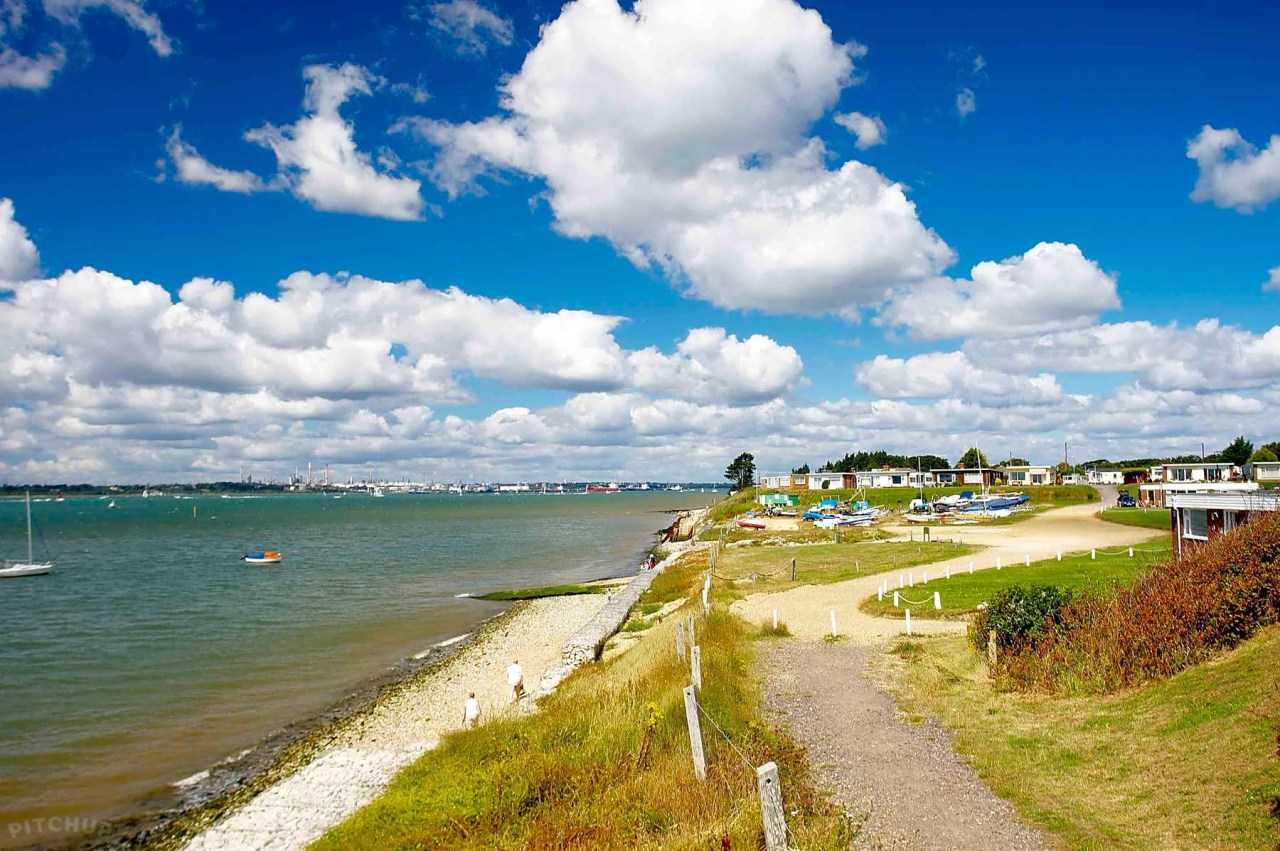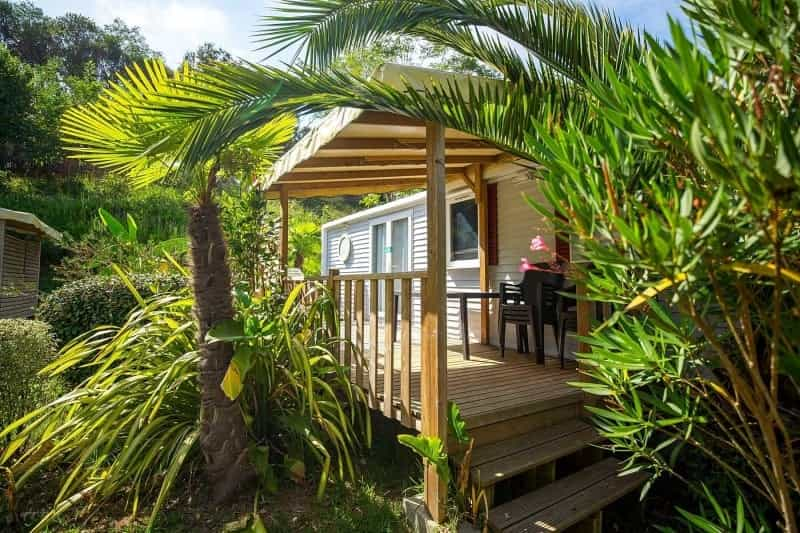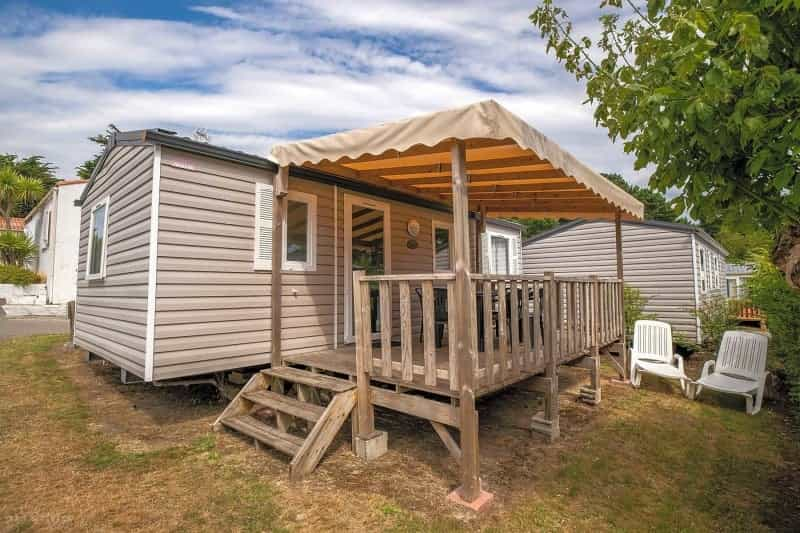Owning a static caravan

If you regularly travel to the same area for holidays, owning a static caravan is a smart choice. It can save you money compared to renting accommodation every time you take a trip. Plus, it gives you the freedom to visit your favourite area whenever you like.
Should you buy a static caravan?
It’s largely up to personal preference, but here are some pros and cons to consider before buying a caravan.
The pros of owning a caravan
-
You can keep belongings in the unit permanently, making packing for trips much easier
-
It’s like owning a second home, but cheaper
-
A caravan’s distraction-free simplicity means you’ll likely spend more quality time with your travel companions
-
You’ll get to know your chosen area much more thoroughly
-
You can rent out your caravan to make a little extra money
The cons of owning a caravan
-
The initial cost of buying a caravan is high
-
Static caravans always depreciate in value
-
You have to spend time and money on upkeep and maintenance
-
You may need to pay ground rent and park fees, depending on where you site your caravan
Are static caravans all the same?
Static caravans will have many of the same sorts of elements – a kitchen and bathrooms, for example, often in a similar layout. But there are two main types of build:
Single static caravan
This is a unit designed, constructed and transported as one piece. It will normally be around 10- 13 feet wide with a length of up to 45 feet. Most will fall into the range of 29-37 feet long, however. It goes without saying that the larger the size of the static caravan, the more space you’ll have to spread out indoors.
Twin unit static
These types of caravans are manufactured in different sections with wheels underneath. They’re connected at the end of the build. Usually, a twin unit static will be constructed in two halves, each around 10 feet in width, and transported like this. Twin unit caravans are usually larger in length than single statics and have more bedrooms as a result, making them ideal for bigger families.
How to buy a static caravan
You can purchase a static caravan privately from the manufacturer or a dealership. They’re also available second-hand at certain holiday parks – bought directly from either the site or the current caravan owner. You can also buy new or used caravans on websites like Caravan Finder.

Quick tips for buying a static caravan
-
For the best price, think about buying a caravan at the end of the holiday season when there’s lower demand
-
Try to negotiate a discount if you’re purchasing from a dealer, particularly if the model is slightly older
-
Check the length of the guarantee. One to three years is typical, but the longer the warranty, the better
What is the average cost of buying a static caravan?
Brand-new models vary in price from around £30,000 to more than £250,000. The fee fluctuates based on type, size, and quality of the build and internal fittings. Used caravans can typically command anywhere between £5,000 and £50,000.
How much does it cost to own a caravan?
You'll need to factor in more than just the initial price when buying a caravan. Here are some potential annual payments to keep in mind:
-
Ground rent and fees: from around £2,000 to more than £5,000
-
Regular caravan service: approximately £150 to £250, not including maintenance or replacement parts
-
Static caravan insurance: about £230 to £350, although this will be higher if you add in contents
How to choose where to keep your static caravan
If you’re not buying a static caravan to put on your own land, you’ll need to find somewhere to house it. The easiest option is to approach a caravan or holiday park. But consider these questions when picking the perfect site for you:
-
Is the caravan park open all year round?
-
Does it allow children and pets?
-
How expensive are the site’s fees?
-
How much do the fees rise on an annual basis?
-
Do fees vary from pitch to pitch?
-
Will I need to pay the park to use the mains gas and electricity?
-
Where will I park my car?
-
What entertainment and sports facilities does the site have?
-
Will I have to arrange my own caravan insurance?
-
What security measures are in place on site?
How to transport a static caravan
Technically, you can attach wheels to many static caravans as they have a chassis with axles. However, in most cases, these units are not designed to be used as vehicles. Instead, they’re transported on a large lorry or towed using a hefty trailer.
Renting out your static caravan

Once you’ve invested in your new home from home, you can recoup some of the initial cost by renting your static caravan to holidaymakers.
On average, your unit can earn you between £400 and £500 per week. But this amount can be higher or lower, depending on these factors:
-
The size of your caravan. A unit that sleeps more people can command a higher price.
-
The location. A static caravan in a holiday hotspot, like a beach village, will tend to have higher hiring fees than a unit that's off the beaten path.
-
The season. You can charge more money when renting out your caravan during high season, particularly in the summer months and over public holidays, due to higher demand.
You’ll need to check whether or not your holiday park allows you to rent out your caravan. If it does, there are certain legal regulations to meet, including:
-
Getting a landlord gas safety certificate
-
Installing a smoke alarm, fire extinguisher and fire blanket
-
Getting a fixed electrical installation certificate
-
Installing a carbon monoxide alarm
FAQs: Owning a static caravan
Do static caravans lose value?
Caravans depreciate at a rate of around 15% annually on average. Like any big-ticket item, they’ll retain more value if they’re looked after. Much like cars, brand-new caravans have a higher rate of depreciation than older ones. With that in mind, you could consider buying a second-hand unit.
Do I have to insure my static caravan?
Legally, you don’t have to insure your caravan. However, it’s a good idea if you regularly rent it out to holidaymakers. Certain holiday parks also stipulate that you insure your caravan if you’re keeping it at their site.
What can I do with my old static caravan?
When static caravans become too dated to stay on site at holiday parks, many people sell theirs on. They’re useful as storage on farms, indoor shelter on building sites, and extra interior space in back gardens. If your old static caravan is badly damaged, you can sell it for scrap.
Will I have to pay council tax on a static caravan?
Not if it’s a holiday home. You won’t need to pay council tax on your caravan unless you live in it all year round at a park with a residential licence.

